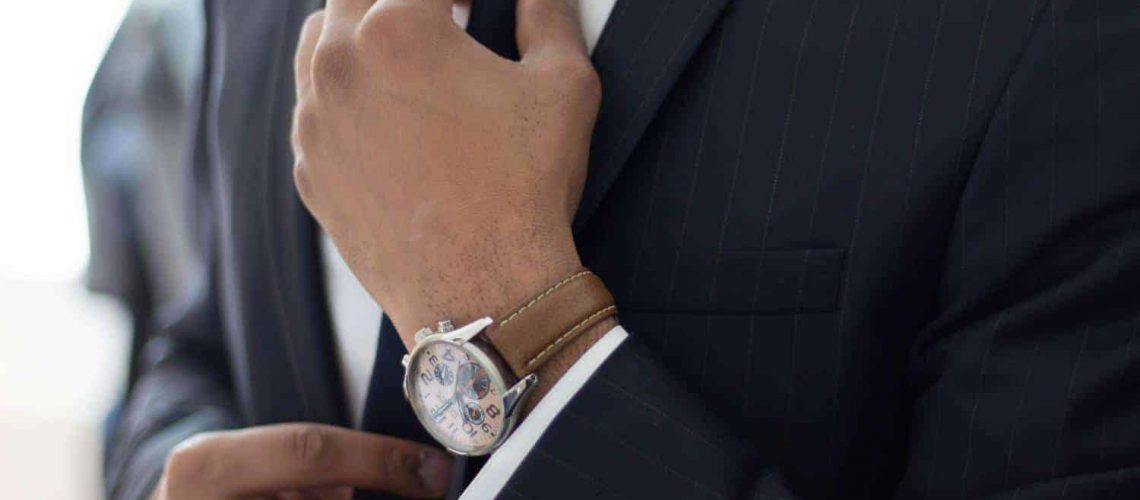Harvard Business Review did some fascinating research on the top CEOs in the world to figure out what made great CEOs vs the ones that failed. They compiled over 10 years of research, interviewed 2,000 CEOs and 15,000 others. In this research, they looked at things like charisma, education, values, and behaviors. What they found is that what might have helped them get the job, didn’t determine their success. It turns out what people think of when they think of a successful leader is often wrong. In fact, there is one behavior that is the key to success as a CEO leader.
Decisiveness
The deciding behavior wasn’t a “value” trait like integrity. I’m sure we can think of CEOs that are hugely successful but do not have integrity. The behavior that mattered most was “decisiveness.” (I hope you enjoyed the pun). The most effective CEOs in this 10-year study were ones that made decisions quickly. They didn’t always make the right decision either! What’s amazing is that the study found that the more intelligent CEOs, the ones with higher IQs and better education actually took longer to make decisions and often failed at the job of being CEO. In this case, great was the enemy of good.
Why Deciding Quickly Is Better Than Deciding Best
Failing Faster
This research shows us that the very best leaders in high powered organizations performed better at their job by making quicker decisions than their counterparts. However, that’s a bit counterintuitive. You’d think you’d want to gather the facts and do research before making the right decision. Instead, getting as much information as was needed for the decision and then making it allowed the CEO to make many more mistakes than their counterparts. However, what would look like mounting failures actually turned into learning opportunities. As it turns out, failure is a much better teacher than success is. In essence, if you are making decisions quickly and learning from the mistakes you’re accelerating your growth. The CEOs that were decisive grew at a much faster pace than their peers.
Max Headroom
In addition to learning from mistakes, being decisive gave the CEOs more freedom to handle other aspects of their job. So often a new leader has tactical, task-related responsibilities that require decisions as well as strategic “big picture” responsibilities, such as casting vision. Often these two job functions require different brain functions. Because of this, it’s easy to become overwhelmed with the responsibilities. However, once you’ve made a decision, you clear that headspace, like turning off an app on your phone, it immediately gives you more bandwidth to accomplish more.
Decision Fatigue
In the classic example, made popular by “Willpower: Rediscovering the Greatest Human Strength” we learn that willpower is a resource that we must manage. In this research, Roy F. Baumeister and John Tierney document an Israeli parole board. What they discovered was that your parole hearing was much more likely to go well first thing in the morning or right after the lunch break. As judges handed down sentencing they became stricter and stricter. Much like a phone battery, the more decisions we make the more the battery gets depleted. These judges were becoming more strict because the decisions they were making were taking a toll.
When we stress over a decision it takes a small toll. Unfortunately, we rarely have only one decision to think about. This compound effect is known as “decision fatigue.” It’s the reason you struggle to connect with your family after an especially grueling day at work. It’s also the reason that CEOs in our study were burnt out too soon or worse fired from their position. You can avoid decision fatigue by making decisions faster or by deciding beforehand.
One key strategy for avoiding decision fatigue is to make decisions before they come up. This won’t work for everything, but it can be key to managing your energy for the day. For example, instead of checking your email, text, and messages and then deciding when to call people back. Decide now to time block your day. Only check your email after your day is planned and decide to return those messages at a given time. You could even load up your voice mail and autoreply to let customers know that you’ll reply between the hours of 11-12 and 4-5. This is just one strategy to conserve energy and avoid decision fatigue.
Questions To Ask To Help Make Decisions Faster
Admittedly, “deciding faster” is easier said than done. However, the research doesn’t leave us without clues. There are 2 key questions you can ask yourself to help make decisions easier.
1. What’s the worst that could happen
Play the decision out in your mind. What happens if you decide? What usually produces fear could be a great test to determine if a decision is a wise one or not.
2. Who gets slowed down when I don’t decide.
The better question is, what happens when you don’t decide. Who will you slow down? Who will you frustrate? Even deciding to decide later and communicating this is better than no decision at all for most organizations.
The research is pretty clear, decisiveness is a key behavior to success. It’s something we do all day, every day. It’s something that if we are cognizant of it, we can improve. So the next time you and your friends or spouse say, “where do you want to eat?” tell them. Because telling them what you want and them telling you no is far better than spending 30 minutes going back and forth and creating fatigue and wasting precious time.
Special Thanks To Dr. Rob McCleland at LeaderTribe for showing me this research.



